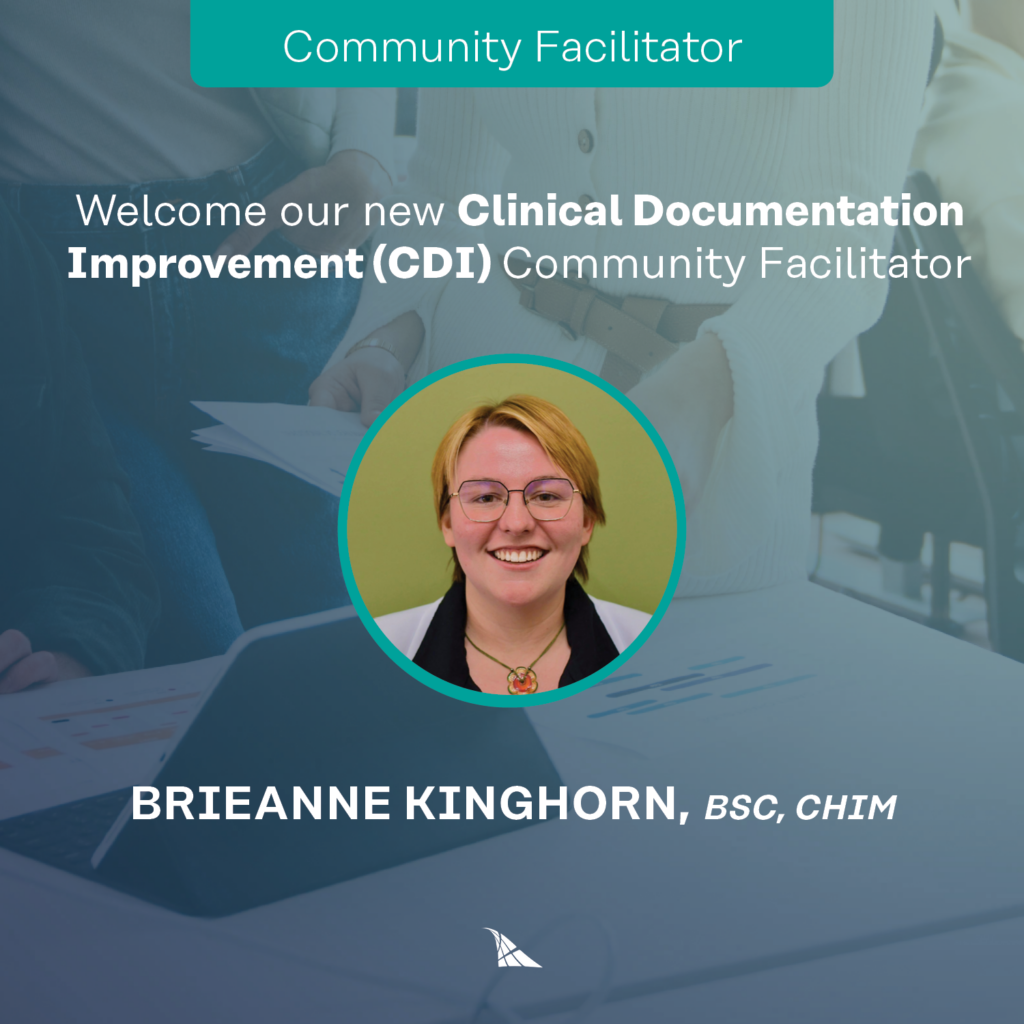
As the Clinical Informatics Lead, Sarah Corbin helps guide her team in the One Patient, One Record (OPOR) project for the Nova Scotia and IWK Health Authorities. With her passion for health care and a dedication to creating a seamless health care experience for both patients and their families, Sarah is helping to streamline patient records across the province of Nova Scotia.
We sat down with Sarah to talk about her leadership philosophy, the OPOR project, and her thoughts on the future of Health Information in Nova Scotia.
Meet Sarah Corbin.
Kelly Wilson: Sarah, can you share your leadership philosophy and how it has guided you? And also tell us more about your involvement in the OPOR project?
Sarah Corbin: My philosophy is one of collaboration. I like to work with others and get their opinions and viewpoints. But on the flip side of that, I do love a good process. Having that stability is needed and is essential in day-to-day operations.
The One Patient, One Record (OPOR) project is a multi-year mission to reshape how we handle health information across the province. Our main goal is to standardize workflows and streamline documentation as efficiently as possible to have all health information in one place.
Instead of relying on multiple systems, we’re creating a centralized source for all patient information – demographics, visit histories, and more. It’s about bringing together all crucial data points in one place to enhance care delivery.
Kelly Wilson: As a Clinical Informatics Lead, how do you ensure data accuracy, and how does that data impact patient care?
Sarah Corbin: Many of our health records have traditionally been paper-based, and we’re shifting towards electronic health records. This involves collaborating closely with health care professionals to understand their daily workflows and identifying what changes will enhance efficiency and accuracy.
We ensure data integrity by reducing the number of redundant or unnecessary forms – for instance, consolidating ten different progress notes into one standardized format.
Sarah holds a certification in Health Information Management. She believes this certification helps broaden her perspective and reinforces her confidence. It has armed her with a deep understanding of the various aspects of health care.
Sarah Corbin: Initially, I pursued the HIM (Health Information Management) program through distance education while working full-time. My goal was to enhance my understanding of the health information field for a potential middle management position. The HIM certification has expanded my knowledge beyond the technical aspects to the broader issues in health care, like health care equity and population health.
Kelly Wilson: Given your experience in Clinical Information Management, how do you see technological advancements shaping the future of health care in Nova Scotia, especially with the OPOR project?
Sarah Corbin: We’re in the midst of a significant digital transformation in Nova Scotia and being a part of it is incredible.
For instance, if a patient from Yarmouth goes for surgery in Cape Breton, their primary care provider can instantly access all necessary information. This access to data across different health care facilities in Nova Scotia means patients won’t have to repeat the same information continuously.
Beyond the data, Sarah finds her rhythm in music. She performs with her sister, whom she calls “her other half.” Together, they bring joy and entertainment to their community. These musical endeavors are not just hobbies for Sarah – they are an extension of her personality, embodying her creative spirit and her ability to connect with people on different levels.
Sarah blends passion, dedication, and skill as she navigates the complexities of connecting health care information across the province of Nova Scotia. While a challenging feat, my guess is that Sarah will continue doing so with a song in her heart and a commitment to making a difference.



